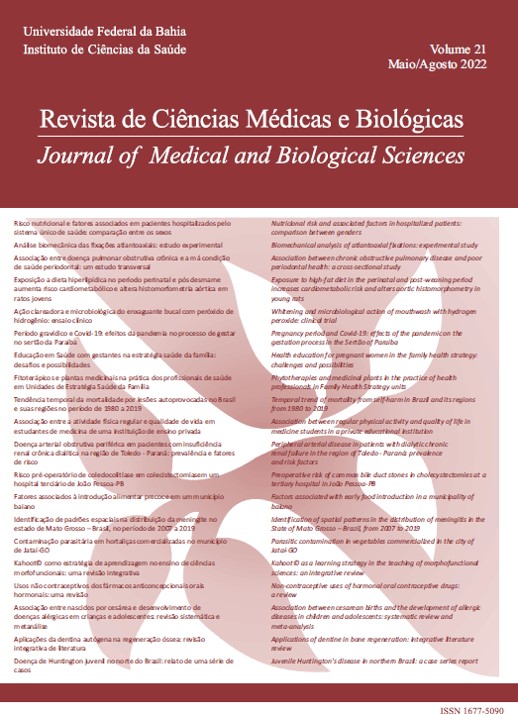Juvenile Huntington’s disease in northern Brazil
a case series report
DOI:
https://doi.org/10.9771/cmbio.v21i2.48469Palavras-chave:
Juvenile Onset Huntington’s Disease. Hereditary Neurodegenerative Diseases. Trinucleotide Repeat Expansion. Phenotypic Variation. Anticipation. Genetic.Resumo
Introduction: Huntington’s disease (HD) is a neurodegenerative disorder caused by CAG expansion repeats in the HTT gene. Usually, the symptoms start to manifest in mid-adulthood. In about 5% of cases, however, the signs begin before the age of 20 years. These cases are known as juvenile HD (JHD). Objective: here we report a case series of JHD from Amazonas, a state where data are scarce due to the restricted access to specialized medical assistance for diagnosis and care. Case series: the patients were attended by neurologists
specialized in movement disorders at Manaus. Two cases manifested the disease in childhood (6 and 7 years old) and two cases, in adolescence (12 and 16 years old). All cases showed dystonia and parkinsonism as predominant motor disorders. Moreover, signs of
cognitive decline, depression, and psychosis were observed in all patients. Conversely, cerebellar signs, gait disturbances, seizures, and some psychiatric symptoms were variable among the cases. Expansion size varied from 66 to 84 to CAG repeats and the difference in
age at onset between parent and child varied from 23 to 43 years. Conclusion: to our knowledge, these are the first clinical reports of JHD in northern Brazil. These cases illustrate the variability in clinical phenotypes and genetic features of JHD cases. Furthermore,
they can contribute to the awareness of HD here, both by professionals and the public in general.
Downloads
Downloads
Publicado
Como Citar
Edição
Seção
Licença
Copyright (c) 2022 Revista de Ciências Médicas e Biológicas

Este trabalho está licenciado sob uma licença Creative Commons Attribution 4.0 International License.
A Revista de Ciências Médicas e Biológicas reserva-se todos os direitos autorais dos trabalhos publicados, inclusive de tradução, permitindo, entretanto, a sua posterior reprodução como transcrição, com a devida citação de fonte. O periódico tem acesso livre e gratuito.






